
Coptis teeta
(MRP Inclusive of all taxes)
- Shipping ₹79 for entire order
- Dispatch in 7 days
- Country of origin: India

(MRP Inclusive of all taxes)
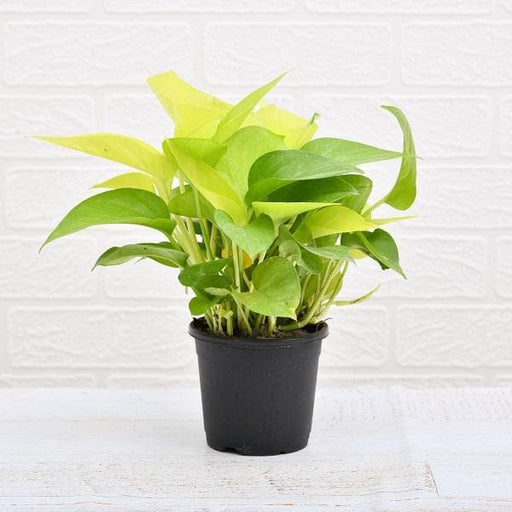 Save 29%
Save 29%
Air Purifier Money Plant with Pot The Air Purifier Money Plant, also known as Pothos or Epipremnum aureum, is a stunning indoor plant that...
View full details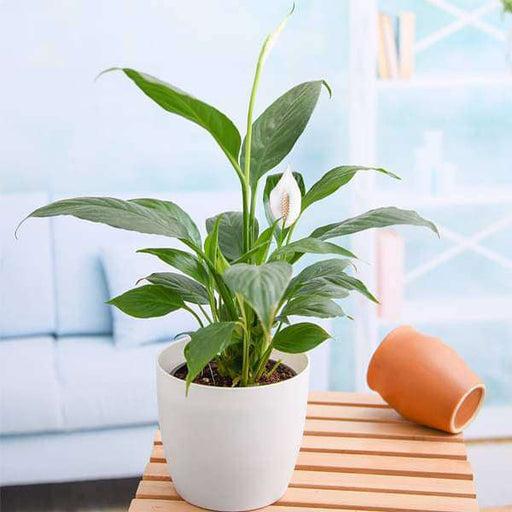
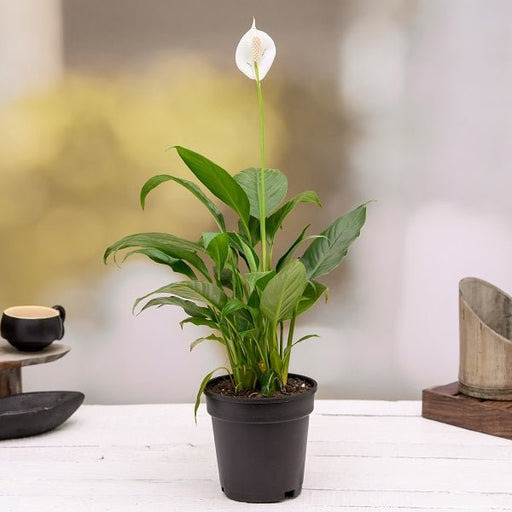 Save up to 15%
Save up to 15%
Peace Lily, Spathiphyllum - Plant The Peace Lily, scientifically known as Spathiphyllum, is a stunning houseplant celebrated for its elegant white...
View full details
 Save 25%
Save 25%
Jasminum sambac, Mogra, Arabian Jasmine - Plant Jasminum sambac, commonly known as Mogra or Arabian Jasmine, is a fragrant flowering plant...
View full details
 Save 18%
Save 18%
Combo Constituents Includes the Parijat Tree (Night-Flowering Jasmine), a culturally significant plant with fragrant flowers. Description The Pari...
View full details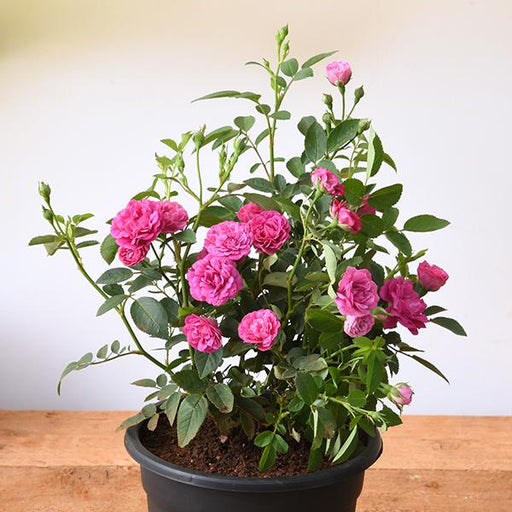
 Save 25%
Save 25%
Miniature Rose, Button Rose (Any Color) - Plant The Miniature Rose, also known as the Button Rose, is a charming and compact flowering plant that ...
View full details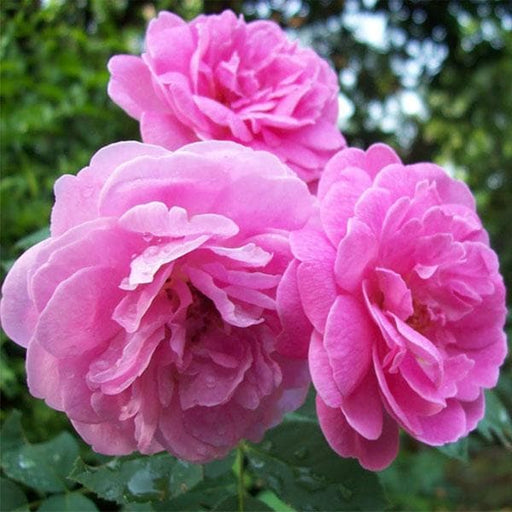 Save 25%
Save 25%
Damascus Rose, Scented Rose (Any Color) - Plant The Damascus Rose, also known as Rosa damascena, is a timeless symbol of beauty and romanc...
View full details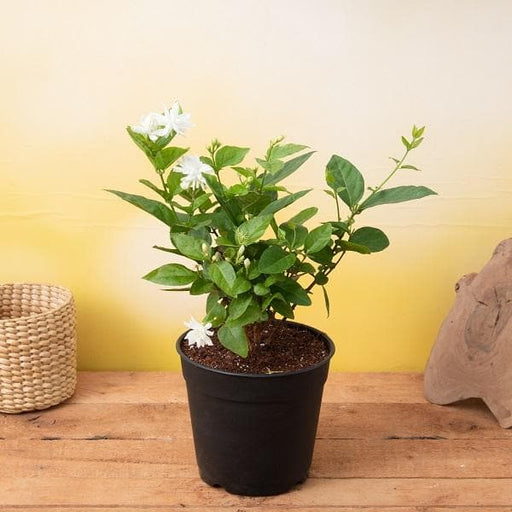
 Save 17%
Save 17%
Beautiful Fragrant Mogra, Arabian Jasmine Plant with Pot The Beautiful Fragrant Mogra, also known as Arabian Jasmine (Jasminum sambac), is...
View full details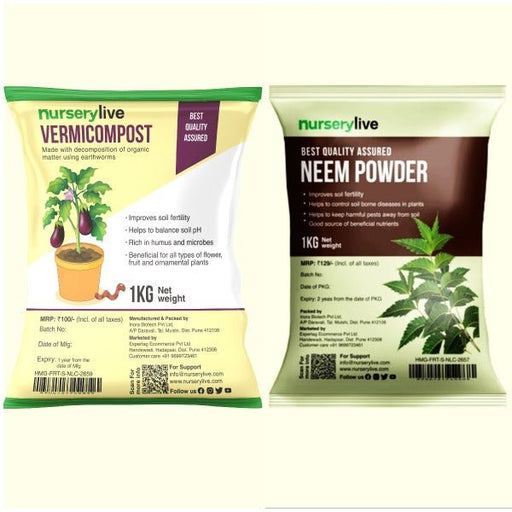 Save 15%
Save 15%
Pack of Vermicompost and Neem Cake for House Plants Transform your indoor garden with our premium Pack of Vermicompost and Neem Cake, spec...
View full details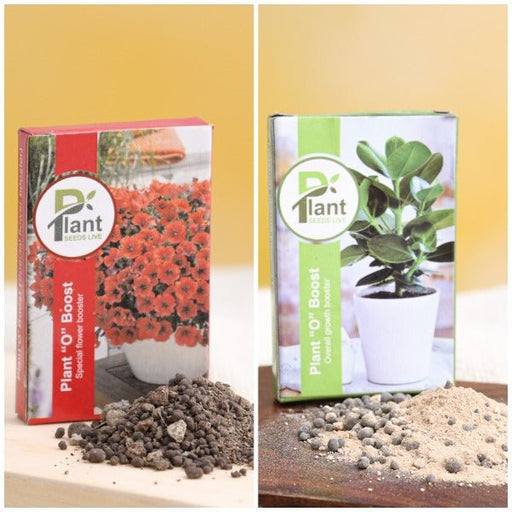
Pack of Plant Growth and Flower Boosters Unlock the full potential of your garden with our Pack of Plant Growth and Flower Boosters! This ...
View full details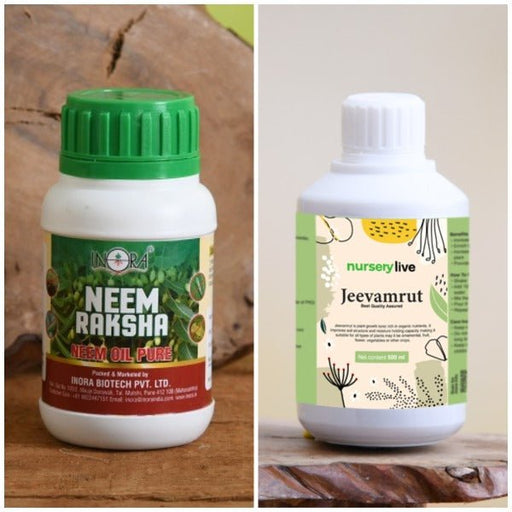 Save 38%
Save 38%
Combo of Jeevamrut and Neem Raksha for Easy Growth and Protection of Houseplants Transform your indoor garden with our exclusive combo of ...
View full details Save 22%
Save 22%
Plant Nutrients Kit (Pack of 16) for a Healthy Garden Transform your garden into a lush paradise with our Plant Nutrients Kit, featuring 1...
View full details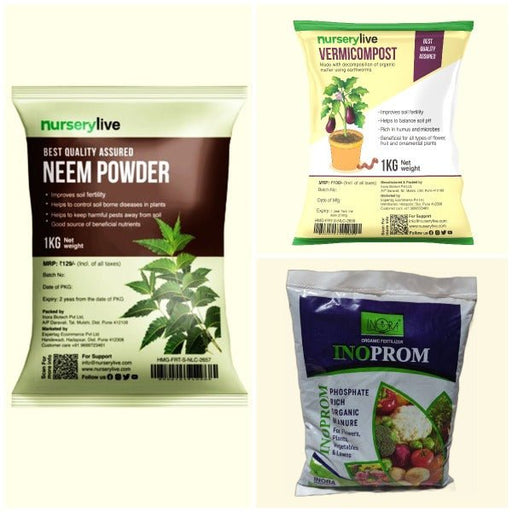 Save 16%
Save 16%
Combo of Top Plant Fertilizers Elevate your gardening game with our exclusive Combo of Top Plant Fertilizers, featuring two bags of premiu...
View full details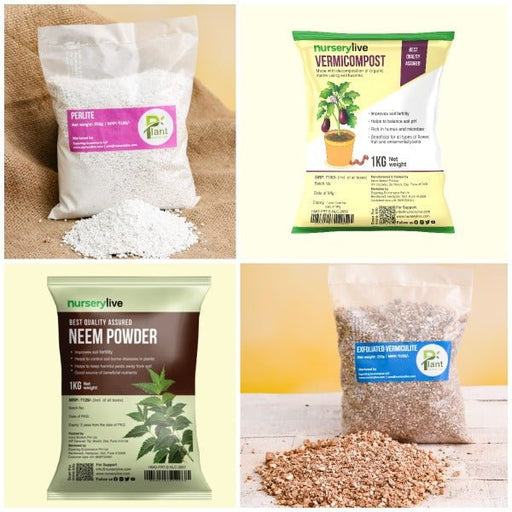 Save 24%
Save 24%
Pack of 4 Additives to Make Soil Healthy and Nutrient Rich Transform your garden into a thriving ecosystem with our Pack of 4 Additives de...
View full details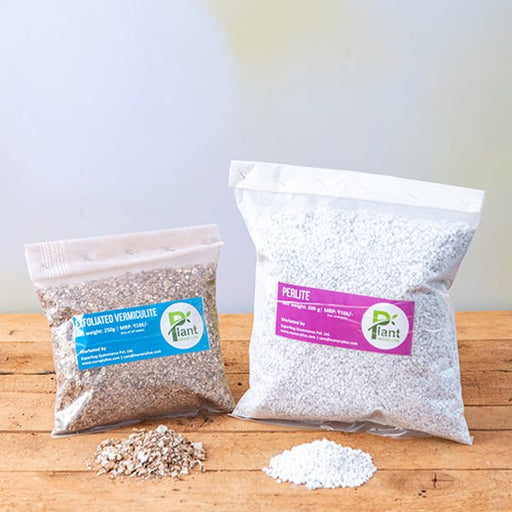 Save 30%
Save 30%
Transform your gardening experience with our premium Combo of Perlite and Vermiculite. This unique blend is designed to enhance soil aeration and ...
View full details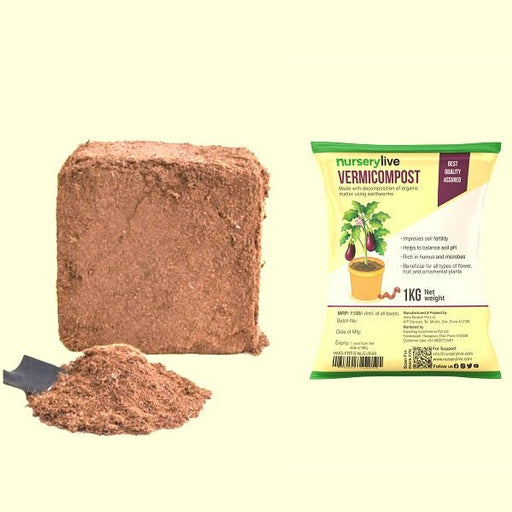 Save 27%
Save 27%
Combo of 2 Vermicompost and Cocopeat - Enrich Your Soil Naturally! Transform your garden into a thriving ecosystem with our Combo of 2 Ver...
View full details
 Save 35%
Save 35%
Best 6 Plants for Perfect Indoor Garden Transform your living space into a lush oasis with our curated collection of the Best 6 Plants for a...
View full details
 Save up to 50%
Save up to 50%
Mini Succulent Garden Pack Transform your space with our Mini Succulent Garden Pack, featuring a delightful collection of 4 any variety beautiful s...
View full details
 Save 30%
Save 30%
5 Best Fragrant Plants Transform your garden or indoor space into a fragrant paradise with our curated selection of the 5 Best Fragrant Plants. Th...
View full details
 Save 24%
Save 24%
Set of 2 Bonsai Looking Grafted Adeniums Transform your indoor or outdoor space with our exquisite Set of 2 Bonsai Looking Grafted Adenium...
View full details Save 45%
Save 45%
Top 4 Die Hard Succulents Pack Transform your indoor or outdoor space with our Top 4 Die Hard Succulents Pack, featuring a curated selecti...
View full details
 Save 30%
Save 30%
5 Best Indoor Plants Pack Transform your living space into a lush oasis with our '5 Best Indoor Plants Pack.' This carefully curated collection fe...
View full details
 Save 25%
Save 25%
Set of 4 Evergreen Air Purifier Plant Pack Transform your indoor space into a lush, green oasis with our Set of 4 Evergreen Air Purifier Pla...
View full details| SrNo | Item Name |
|---|---|
| 1 | Coptis teeta |
Coptis teeta, commonly known as the Himalayan Goldenseal, is a perennial herb native to the temperate regions of the Himalayas. Renowned for its vibrant yellow rhizomes, this plant has been used in traditional medicine for centuries, particularly in Ayurvedic practices. Its potent alkaloids, including berberine, are celebrated for their antimicrobial and anti-inflammatory properties, making it a valuable addition to herbal remedies.
What sets Coptis teeta apart is its unique ability to thrive in shaded, moist environments, making it an ideal candidate for sustainable cultivation in forested areas. This herb not only supports biodiversity but also plays a crucial role in the ecosystem by preventing soil erosion and promoting healthy forest growth.
Special features of Coptis teeta include its adaptability to various soil types and its resilience against pests, making it a low-maintenance plant for herbal enthusiasts. Its striking yellow roots are not only visually appealing but also packed with health benefits, making it a sought-after ingredient in herbal formulations.
Cultivating Coptis teeta can have a positive impact on the environment by promoting biodiversity and supporting local ecosystems. Its growth helps stabilize soil and prevent erosion, making it a valuable plant for sustainable agriculture. By choosing to grow this herb, you contribute to the conservation of Himalayan flora and support traditional herbal practices.
If you think this tree is just a pretty face, think again! Coptis teeta, also known as the Himalayan gold, is a treasure trove of health benefits. From its anti-inflammatory properties to its ability to boost your immune system, this tree is like that overachieving friend who always brings the best snacks to the party. It’s packed with alkaloids that can help with digestive issues and even has potential anti-cancer properties. So, if you’re looking for a natural remedy that’s as impressive as it is effective, Coptis teeta is your go-to green superhero.
Growing Coptis teeta is like hosting a garden party where the guest of honor is a diva. This tree prefers cool, shady spots and well-drained soil, so make sure to roll out the red carpet for it. It thrives in the Himalayas, but with a little love and care, you can cultivate it in your backyard. Just remember, it’s not a fan of direct sunlight or overly wet feet. Treat it right, and it’ll reward you with its stunning foliage and medicinal properties.
Coptis teeta isn’t just a pretty tree; it’s the Swiss Army knife of the plant world! Traditionally used in herbal medicine, its roots are ground into a powder and used in teas, tinctures, and even skincare products. Whether you’re looking to soothe a sore throat or add a touch of nature’s magic to your beauty routine, this tree has got you covered. It’s like having a multi-talented friend who can whip up a gourmet meal and fix your Wi-Fi at the same time.
If Coptis teeta were a person, it would definitely be a mountain dweller with a penchant for the cool breeze. This tree thrives in the temperate forests of the Himalayas, where it enjoys the company of other flora and fauna. It loves moist, shady environments, making it the ultimate introvert of the plant kingdom. So, if you’re planning a trip to the mountains, keep an eye out for this hidden gem nestled among the rocks and trees.
Extracting goodness from Coptis teeta is like squeezing juice from a lemon—only much more beneficial! The extract is rich in berberine, a compound known for its antimicrobial and anti-inflammatory properties. It’s like nature’s little potion that can help with everything from gut health to skin issues. Whether you’re adding it to your herbal remedies or using it in skincare, Coptis teeta extract is the secret ingredient you didn’t know you needed.
In the world of Ayurveda, Coptis teeta is the wise sage that everyone turns to for guidance. Known for its balancing properties, it’s often used to treat various ailments, from digestive disorders to skin conditions. This tree embodies the holistic approach of Ayurveda, promoting harmony between body and mind. So, if you’re looking to channel your inner yogi, incorporating Coptis teeta into your routine might just be the spiritual boost you need.
Coptis teeta has been the go-to remedy in traditional medicine for centuries, proving that some things never go out of style. From ancient herbalists to modern-day practitioners, this tree has been revered for its healing properties. It’s like the classic rock band of the herbal world—timeless and always in demand. Whether used in decoctions or poultices, Coptis teeta continues to be a staple in the medicine cabinet of those who appreciate the wisdom of nature.
If your skin could talk, it would probably ask for a date with Coptis teeta! This tree’s extract is a rising star in the skincare world, known for its anti-inflammatory and antibacterial properties. It’s like a soothing balm for irritated skin, helping to calm redness and promote a healthy glow. So, if you’re tired of the same old skincare routine, consider adding a splash of Coptis teeta to your regimen for that extra touch of nature’s magic.
When it comes to gut health, Coptis teeta is the friend who always knows the best restaurants. Its berberine content is known to support digestive health, helping to balance gut flora and alleviate discomfort. Think of it as your personal digestive guide, steering you away from the fast food joints and towards a healthier lifestyle. So, if you’re looking to keep your gut happy, Coptis teeta might just be the culinary companion you need.
Coptis teeta is like a personal trainer for your immune system, pushing it to be the best it can be! Packed with antioxidants and anti-inflammatory compounds, this tree helps bolster your body’s defenses against illness. It’s like having a bodyguard made of nature, ready to fend off those pesky germs. So, if you want to give your immune system a little pep talk, consider incorporating Coptis teeta into your daily routine.
In a world where sustainability is key, Coptis teeta is the eco-friendly hero we all need. This tree not only provides medicinal benefits but also plays a role in maintaining biodiversity in its native habitat. By promoting sustainable harvesting practices, we can ensure that future generations will also benefit from this remarkable tree. So, let’s raise a toast to Coptis teeta—nature’s way of reminding us that taking care of the planet is just as important as taking care of ourselves.
Coptis teeta is a perennial herb native to the Himalayan region, known for its striking yellow roots and medicinal properties. Often dubbed the "golden herb," it’s a superstar in traditional medicine, particularly in Ayurveda and Tibetan practices. Think of it as nature's little pharmacy, packed with alkaloids that can give your health a boost!
Coptis teeta is like a Swiss Army knife for your health! It boasts anti-inflammatory, antimicrobial, and antioxidant properties. This herb is often used to support digestive health, combat infections, and even manage blood sugar levels. So, if you’re looking for a natural remedy, Coptis teeta might just be your new best friend!
In traditional medicine, Coptis teeta is often brewed into teas, tinctures, or powders. Practitioners use it to treat a variety of ailments, from digestive issues to skin conditions. It’s like a multi-talented actor in the herbal world, stepping into different roles depending on what your body needs. Cue the applause!
Generally, Coptis teeta is safe for most people when used appropriately. However, like any herb, moderation is key! Overindulgence can lead to side effects like digestive upset. Always consult a healthcare professional before diving into the herbal pool, especially if you’re pregnant or on medication. Safety first, folks!
You can find Coptis teeta at health food stores, herbal shops, or online retailers. Just make sure to check the quality and source—after all, you wouldn’t want to buy a knock-off version of this herbal gem! Look for reputable brands that offer pure, sustainably sourced products. Happy hunting!
While Coptis teeta isn’t a magic weight-loss pill, it may support your journey! Its potential to regulate blood sugar and improve digestion can be beneficial. Pair it with a balanced diet and exercise, and you might just find it’s a helpful sidekick in your quest for a healthier you.
Coptis teeta is generally well-tolerated, but it can cause side effects like nausea or diarrhea in some folks. It’s like that friend who can be a bit too much at times! Always start with a small dose and listen to your body. If things get dicey, it’s time to take a step back.
Yes, Coptis teeta can interact with certain medications, especially those affecting blood sugar or blood pressure. It’s like a party crasher at your medication bash! Always consult your healthcare provider before adding this herb to your regimen to avoid any unwanted surprises. Better safe than sorry!
Preparing Coptis teeta is as easy as brewing a cup of tea! Simply steep the dried root in hot water for about 10-15 minutes. You can also find it in capsule or powder form for added convenience. Just remember, a little goes a long way—don’t drown it in water like a sad sponge!
Coptis teeta has been traditionally used to treat skin conditions like eczema and acne. Its antimicrobial properties can help keep pesky bacteria at bay. Think of it as a natural skincare superhero, ready to swoop in and save your skin! Just remember to patch test first, because even heroes have their limits.
The recommended dosage of Coptis teeta varies depending on the form—tea, tincture, or capsules. Generally, 1-2 grams of the dried root or 30-60 drops of tincture is a good starting point. But remember, every body is different! Consult a healthcare professional to find your perfect dose and avoid any herbal mishaps.